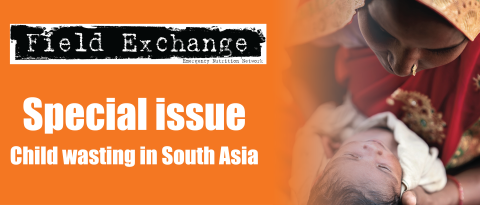Effect of supplementation during pregnancy and lactation on the nutritional status of infants in Pakistan
Research snapshot1
Despite economic and social development, malnutrition remains a major public health problem in Pakistan, especially low birthweight, wasting, stunting and micronutrient deficiencies. A recent randomised controlled trial in the Thatta and Sujawal districts of Sindh in Pakistan studied the effects of providing fortified wheat-soya blended flour (WSB+) to pregnant and lactating women on infant nutrition outcomes.
The study, which took place from 2014 to 2016, recruited 2,030 pregnant women and provided some of them with a monthly ration of 5 kg (i.e., 165 g/day) of WSB+ during their pregnancy and for the first six months of breastfeeding. Outcomes assessed were maternal weight gain, the prevalence of low birthweight and the nutritional status of the infants at six months of age. No difference was found in weight gain during pregnancy between the intervention and control groups (n = 496, 326.7 g/week 95% CI 315.2–338.1 vs. n = 507, 306.9 g/week, 95% CI 279.9–333.9, P = 0.192) nor in the prevalence of low birthweight (n = 325, 34.0%, 95% CI 31.7–36.4, vs. n = 127, 34.3%, 95% CI 27.2–41.5, P = 0.932).
However, there was a significant improvement in the nutritional status of the infants at six months who had a reduced risk of wasting (n = 1330, RR 0.77, 95% CI 0.65–0.91, P = 0.003), and being underweight (n = 1295, RR 0.77, 95% CI 0.69–0.87, P < 0.001). Although the risk of stunting at six months of age was also reduced in the intervention group, after adjusting for confounding factors, there was no statistically significant difference (n = 1318, RR 0.91, 95% CI 0.78–1.07, P = 0.253). A significant reduction in anaemia was also noted in infants at six months of age in the intervention group (n = 1328, RR 0.94, 95% CI 0.91–0.98, P = 0.002).
These results suggest that the provision of WSB+ during pregnancy and lactation is effective in reducing the risk of undernutrition and anaemia in infants at six months of age. The success of this intervention should be noted by governments, donor agencies and other implementers seeking to improve the nutritional status of infants and children in the region.
1 Khan, G.N., Ariff, S., Kureishy, S. et al. Effectiveness of wheat soya blend supplementation during pregnancy and lactation on pregnancy outcomes and nutritional status of their infants at 6 months of age in Thatta and Sujawal districts of Sindh, Pakistan: a cluster randomized-controlled trial. Eur J Nutr (2020). https://doi.org/10.1007/s00394-020-02276-3


